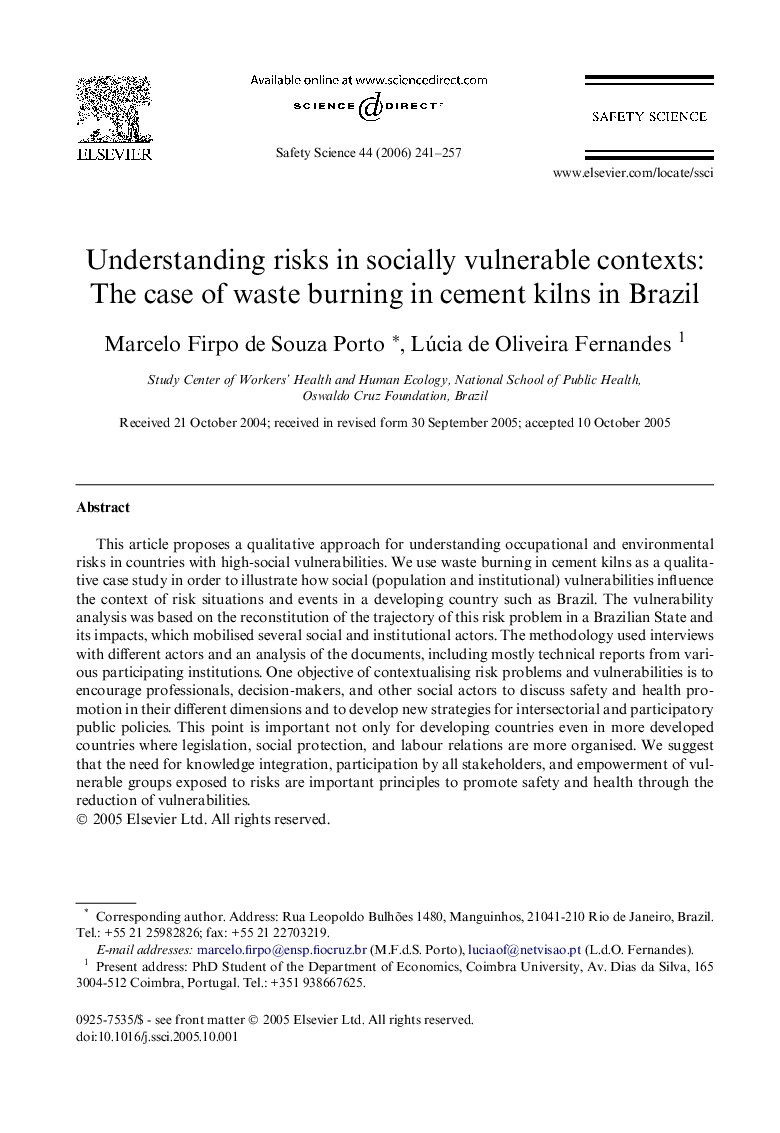| Article ID | Journal | Published Year | Pages | File Type |
|---|---|---|---|---|
| 590280 | Safety Science | 2006 | 17 Pages |
This article proposes a qualitative approach for understanding occupational and environmental risks in countries with high-social vulnerabilities. We use waste burning in cement kilns as a qualitative case study in order to illustrate how social (population and institutional) vulnerabilities influence the context of risk situations and events in a developing country such as Brazil. The vulnerability analysis was based on the reconstitution of the trajectory of this risk problem in a Brazilian State and its impacts, which mobilised several social and institutional actors. The methodology used interviews with different actors and an analysis of the documents, including mostly technical reports from various participating institutions. One objective of contextualising risk problems and vulnerabilities is to encourage professionals, decision-makers, and other social actors to discuss safety and health promotion in their different dimensions and to develop new strategies for intersectorial and participatory public policies. This point is important not only for developing countries even in more developed countries where legislation, social protection, and labour relations are more organised. We suggest that the need for knowledge integration, participation by all stakeholders, and empowerment of vulnerable groups exposed to risks are important principles to promote safety and health through the reduction of vulnerabilities.
